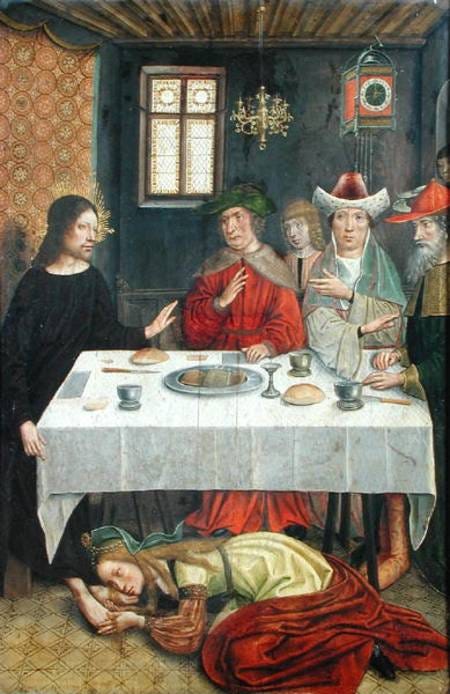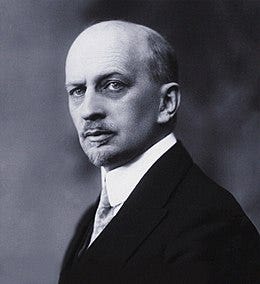Putin, Biden and medieval presumptions
On February 17th 2021 Joe Biden was asked abruptly: “Do you think that Putin is a killer?” and he answered, “I do”.
In a few hours, Putin replied with a long and intense statement, in which he said something that a legal historian immediately recognises. He began with a simple notion, one used by kids (“it takes one to know one”) but was also quick to add the profound implications of what he was saying. He was talking of an inborn innocence: “I’m a mirror, if you see evil, that’s your evil”.
Legal historians are familiar with these ideas because they were part of the medieval theory of presumptions. I wonder if we would understand what he was trying to say if we missed out on that medieval background.
Do we need to go back that far in time? We do: arguments have a history, like individuals: they come to life, flourish in particular settings and sometimes are used for particular purposes. And they say something about their user.
So, who is Vladimir Putin: a dictator, a psychopath, the redeemer of Great Russia? Nobody knows, but there is a small corner in his mind that a legal historian can understand, which I’ll try to investigate in this video.
We need first to clarify a point.
We mentioned presumptions, so what is a presumption? Simply put, humans fear not knowing, because sometimes knowing means surviving. We encounter a stranger at night, is he a friend or an enemy? Because we are in doubt, we presume. We quickly observe, go back to memories, recollect past experiences, and grind those data into a snap judgment, concluding that this person is -- probably, maybe, perhaps -- a friend, or an enemy.
This mental process runs in the background of everyone's mind but has a place also in judicial procedure to fill informational gaps. It was particularly important in the medieval period when the major source of information was provided not by documents but by real people. If the judge needed to know something about the case under discussion (“what happened, who did it?”) he gathered testimonies and heard what Mary, James, Francesca could say; and once again the question was: who is this person, can be trusted or is a liar? Presumptions were the source of information to answer those questions.
For those medieval judges, a major source of reference was an important theological work, the Summa by the Franciscan friar Alexander of Hales (publ. mid-13th century), a huge book so massive that, as one of its readers remarked, could be hardly be carried by a horse.
So the question was, Is it correct for a judge to make a decision based on a presumption, for example thinking that “Paul (or Vladimir) is an assassin”?
The answer was, “Well, sometimes, not always.” And when such a presumption is misleading? “When a judge sees evil in someone who only shows good signs because in this case, the evil is in the eyes of the deliberator.”
It reminds you of something, doesn't it? Let's take a closer look at this book.
This medieval author, Alensis, used an iconic example to explain this misleading presumption, the story of Jesus and Mary Magdalene (Luke, 7.36-39).

Jesus arrives in a village and is invited into the home of a local merchant. As the dining hall is opened onto the street, a woman enters. Heads turn, the conversation halts: Who is this woman? Known as Magdalena, she was rumoured to be a prostitute. She approaches Jesus and begins to cry; kneeling before him, washes his feet in tears, shrouds them in her hair and anoints them with some perfumed oil. The merchant sitting at the table begins to wonder:
"This man, if he were a prophet, would have seen who and what kind of woman this is who touches him, that she is a sinner." (Luke, 7.39)
The merchant saw evil, but wrongly. Magdalena was a pious and redeemed woman who showed love to Jesus who redeemed her. The merchant misjudged Jesus: he saw evil because evil was in his eyes.
Jesus’ encounter with Magdalena is a rich and moving story which through the centuries has been revived and explored in many different keys.
This medieval author too turned to this story, he wanted to exemplify a presumption that is flawed because based on wrong reasoning. The principle was that an individual who presents good signs (in this case Jesus) cannot be judged negatively, and to think otherwise would be reckless or temerary (this presumption was in fact called “temeraria”).
A few lines below, we find the case of the gentleman seen while speaking to a woman in a suspicious place at night: because he is a gentleman, he is above any suspicion, having that status he is not necessarily an adulterer. The lesson was that to think evil from good signs is incorrect: if you see evil, that’s in your eyes.
This argument made sense in the medieval world. People thought in terms not of individuals but of human types. Society was structured in a static hierarchy that determined your nature. Who you were depended on your place on that scale.
So, your human type was important: are you a peasant, a sailor, a wanderer, a merchant, a scholar, a soldier, a cardinal, or an aristocrat? Each lived in their world, with their qualities, their language, and their chances to be believed, in a snap judgment.
Modernity swept that world away. Rationalism started from the premise that everyone comes to the world naked, as a “blank slate”; everything we know comes from experience, and the truth is testable.
The fruits of modernity -- democracy, liberal institutions, the rule of law -- come precisely from that blank slate idea. At this point to think that those on top of the scale only show good signs didn’t make sense anymore.
So, arguments have a history, like individuals: they come into being and thrive in their setting. The argument of an inborn innocence (“I’m a mirror, if you see evil, that’s your evil”) thrived in that particular static and hierarchical society which in turn reflected a particular view of truth.
In this setting, you cannot think evil of someone who enjoys inborn innocence. When one of those lucky ones is attacked, they can flag the error: “if you see evil you are wrong, evil is in your eyes!”
We fast forward to the present day. We saw how Vladimir Putin revived this medieval idea of an inborn innocence in his reply to Joe Biden. What does this medieval argument say about Putin’s mind?
It was not a display of erudition: Putin, with his voice slightly cracked by emotion, was uttering one of his deepest commitments.
To begin to understand what he was saying, we must turn to his philosophical avatar: Ivan Ilyn (1883-1954) who is the ideological source of the current Russian political project.
This story is not new, for those who know the compelling account produced by the Yale historian Timothy Snyder. Ilyn was the creator of a sort of Christian Fascism that translated his political heroes, Adolf Hitler and Benito Mussolini, into a grand overarching political design, which Putin implemented and popularised from around the year 2000 at the beginning of his political trajectory.
Three aspects of Ilyn’s philosophy inject new life into the medieval argument of inborn innocence:
The first is the idea of an “eternity politics”: a theory of history by which the present time, anything we do and think today, is wrapped up in an eternal and organic design that, as it were, swallows up the present time placing it in a long line that goes back to an archaic past. Political action is an “eternity politics” in which facts and individual responsibilities do not count: they are blurred in this magmatic movement in time. His point is that the archaic past is still with us.
Second, this “eternity politics” begins from an inborn innocence. This is the only good that must be preserved and defended. History unfolds in a simple opposition between Russian innocence and the external enemy; history is a succession of enemies attacking and threatening this innocence and is experienced in terms of a simple ethics: an ethics of suffering. This innocence has the biological form of a virginal Russian body to be defended.
The third element is the idea that this eternity history is moved forward by the political leader, Vladimir Putin, who is the defender, and in Ilyn’s language, the “redeemer” of this inborn innocence. He is pure and his purity cannot be discussed. As in the exchange with Joe Biden: “I’m a mirror, if you see evil, that’s in your eyes”.
So who is Vladimir Putin a dictator, a criminal, a psychopath? I think that any attempt the grasp his mind should begin with trying to understand those medieval implications of saying “I am a mirror” in his reply to Joe Biden.





